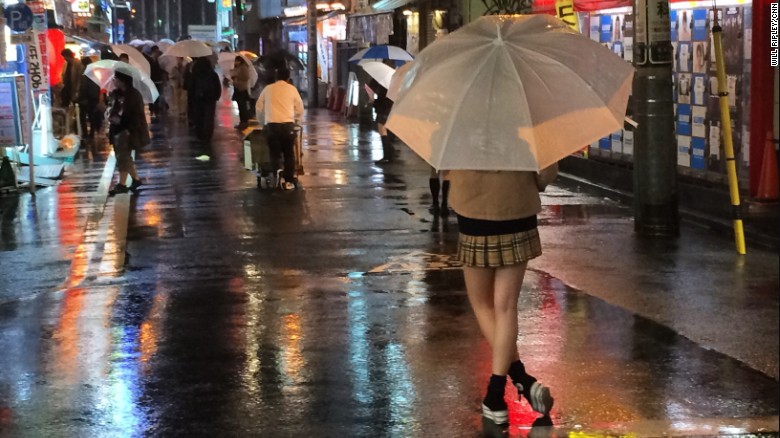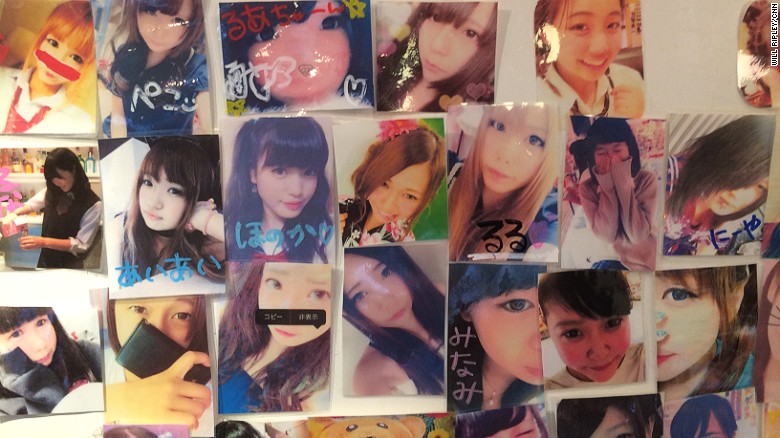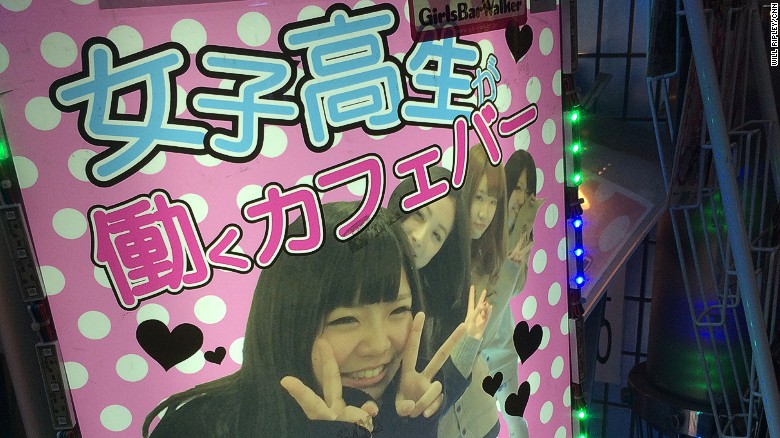RustyNails
Member
Fascination with Japanese schoolgirl culture hiding a darker side?



Tokyo (CNN) On a cold, rainy night in Tokyo -- Japanese schoolgirls line the streets.
Shivering in short skirts they pass out fliers for "JK" or "joshi-kosei," cafes in which adult males pay for the company of girls as young as 16.
"Most are in their 30s, 40s and 50s," says 18-year-old Honoka.
The girls, all dressed in their actual high school uniforms, earn about $8 dollars an hour to socialize and serve food and drink to men often more than twice their age.
Sometimes however, the men want more than talk.
16-year-old Eli says that customers ask the girls out on dates "all the time."

The dark side
While some cafes, like the one in which Eli and Honoka work, strictly prohibit dating or interacting with customers outside the business, there is a much seedier and disturbing side of JK.
CNN found businesses selling school girl massages, uniforms and even supposedly "used" underwear.
Other girls are made available for dates, which the authorities and advocates for victims of sexual exploitation warn are often a barely concealed front for child rape.
"Once you're out of the shop, even by a step, you can do whatever you want," one victims' advocate told CNN.
In its most recent report on human trafficking, the U.S. State Department warned that "sophisticated and organized prostitution networks target vulnerable Japanese women and girls."
"Enjo Kosai," or "compensated dating," the report said, "continues to facilitate the prostitution of Japanese children."
An abiding sense of shame and victim-blaming within Japanese culture prevents many girls from coming forward, says Shihoko Fujiwara, director of the Lighthouse Center for Human Trafficking Victims.

Child pornography
Japan has long had an uneasy relationship with the sexualization of children. It was only in June 2014 that the government finally outlawed the ownership of child pornography.
Activists criticized the bill for excluding anime and manga -- Japanese styled animations and comic books -- that feature child sex abuse, which industry representatives justified on the grounds of freedom of expression.
"Rich, deep culture is born from something that might not be accepted by all. We need to allow the gray zone to exist as a necessary evil," said Hiroshi Chiba, manager of manga production house Chiba Tetsuya Production. With that, he admitted that some products of the industry leave him and his colleagues "disgusted."
In one Tokyo manga store, in an area marked "adults only," CNN observed content which depicted female characters wearing school uniforms, hair clips and innocent expressions as they engaged in sometimes violent sex acts with dominant characters.
While no link has been made between anime, manga and child abuse, a 2014 White Paper issued by the Japanese National Police Agency said that the number of child abuse victims jumped 20% between 2011 and 2012.

In October, organizations and activists fighting child pornography called on the government to do more to protect young victims and crack down on the producers and consumers of child porn.
"There is no denying that Japan remains a country tolerant of child pornography," they said in a petition signed by a number of leading NGOs, including Lighthouse.
The petition calls for the law to be revised to outlaw much of the "JK" trade, including underage massages and "walking dates."
The age of consent in Japan is 13, though individual prefectures and cities often have their own legislation governing this area, meaning it varies between 13 and 17.
Click the link for full article including a video of the CNN report.Customers see no problem
Male customers at the Tokyo "JK" cafe said they didn't see anything inappropriate about the business.
One man, a married university professor in his 40s, told CNN he was doing "research on the younger generation."
He was unsure whether he'd feel comfortable having his now 12-year-old daughter work in a "JK" cafe, though he insisted that nothing inappropriate happened there.
"If (my daughter) was here, I could at least supervise her," he said.
Another man, in his 30s, said he managed a similar "JK" business and comes to the cafe CNN visited every week "because it's fun."
He acknowledged that there was a level of sexual "stigma" around the practice, but said that critics should "come just once and try it."
